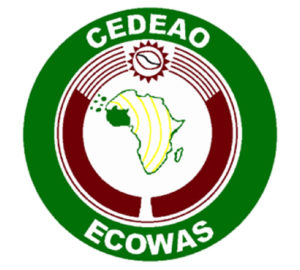ECOWAS Free Movement Protocol: Awareness level on the down side
 Some travelers and traders who ply Aflao-Togo-Benin-Nigeria-Ivory Coast ECOWAS road corridors have complained of harassment and distortion by some border officials along these corridors.
Some travelers and traders who ply Aflao-Togo-Benin-Nigeria-Ivory Coast ECOWAS road corridors have complained of harassment and distortion by some border officials along these corridors.
“We are ECOWAS citizens and according to the ECOWAS Free Movement Protocol, every citizen should have free movement across the borders of the member states”.
“Frankly speaking this is just on paper and it is not being implemented because anytime we use any of our borders we face harassment from border officials even if we have all our documents in place”.
This came to light when Media Network on Migration (MENOM) Foundation interacted with a section of travelers and traders during its visit to Aflao in the Volta Region.
The border visit formed part of the Foundation’s project on a small-scale co-funding opportunity for the implementation of actions aimed at improving the effective implementation of the ECOWAS Free Movement Protocols in the country.
Under the project, MENOM Foundation is undertaking a series of intervention activities aimed at achieving that goal.
MENOM Fondation is collaborating with the Centre for Migration Studies (CMS), University of Ghana to implement a series of project activities under the MADE West Africa project.
The MADE West Africa is a project being undertaken by the Centre for Migration Studies in collaboration with partners in the UK and France and coordinated by MADE West Africa and jointly funded by the International Catholic Migration Commission Europe (ICMC) in Brussels, Belgium with funding from the European Union.
Mr Seth Wupa, a businessman, said issues of one having valid travel documents including passports or national identity cards or not, did not matter within the corridor.
He said the illegality is sometimes condoned by higher authorities at these borders because “when we make a complaint to them they technically water down their conducts and exonerate them”.
“A new passport of a traveler for example is termed by the various Immigration staffs as a “virgin passport”, meaning it was not fully qualified for use until the holder doles out a cash top ups equalling about GH¢30 and above, and GH¢10 or more for old passports to be endorsed”, he said.
He said deliberate delays, including heckling, pushing and howling were used by the various agency staffs, including Immigration, Customs, Port Health Directorate and other adhoc units to extort money from traveler or traders.
Madam Adzoa Hounkpanti, a trader, also corroborated the corrupt and inhumane practices of frontier personnel, saying no one listens when you complain.
However, Mr Frederick Duodu, the Aflao Sector Commander of the Ghana Immigration Service (GIS), in an interview with the GNA, denied the claims saying nothing like that has been reported to his outfit.
“I am not aware of the term ‘virgin passport’ and any payments for passports to be endorsed, whether old or new”, he said.
Mr Duodu said no traveler has reported any of his subordinates on the ground of such acts, in which case he would have quickly investigated and discipline the perpetrators.
He said some complaints made by some travelers through the Ketu South Municipal Authorities and the area’s traditional authorities recently, for example, turned out to be mere lack of information and miscommunication between the travelers and the Immigration officers after the investigations.
“We have a great challenge at hand. Because of the knowledge on the travel protocols, people do not want to be taken through any scrutiny at all. But you know, as an international entry route, we still have to do due diligence to ensure dangerous elements do not slip through easily. This is what is often termed harassment”, Mr Duodu said.
He said border officials, including the Immigration Service, have been undergoing continual sensitisation on the ECOWAS protocols, with the relevant staff trainings, adding they would therefore not under mind the goal, despite some expected infractions as a human institution.
He said: “Border residents, some of them having their families at other side, and therefore crossing the frontier ten times or more a day, would also have to be examined each time with minimal identification, though.”
He said passports and national ID card holders, which have been the traditional travel documents of nationals of mainly French speaking countries, were allowed through.
He said with the task of fighting human trafficking, and with some travelers refusing to stop for questioning, the Immigration officers would have to be a bit robust sometimes as people were becoming physically stronger.
He said unlike the Kotoka Airport in Accra, where the layout is properly demarcated for human, goods and vehicular movement, the poor infrastructure, lack of surveillance cameras, absence of a frontier patrol road and a barbed wire fence wall continue to hamper their work.
The ECOWAS Free Movement Protocol was adopted in 1979 to promote the Free Movement of Persons, Right of Residence and Establishment in the ECOWAS region and thus aimed at promoting cooperation and integration of the ECOWAS countries.
Source: GNA
